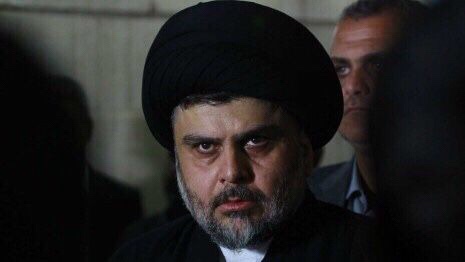 Who will assassinate Moqtada al-Sadr?
Who will assassinate Moqtada al-Sadr?Muqtada al-Sadr has risen on the Iraqi political scene again but in a different way following the victory of his bloc Sairoon in the elections, topping other Iraqi blocs led by Nuri al-Maliki and Hadi al-Amiri.
Today, Muqtada al-Sadr is a national leader. The Iraqi people have expressed their desire in choosing him and his nationalist approach. He is the winning horse for the Iraqi national sectarian reference, distinct from other blocs that merely became tools that exploit Iraq’s wealth for two purposes only.
The first is appropriating the country’s wealth through corruption and the second is serving the Iranian revolutionary project, the supreme guide and the Iranian Revolutionary Guards. Sadr has thus become the symbol of a new era for post-2003 Iraq.
On the regional level, the new Iraq that had distanced itself from sectarianism and the Iranian regime can bring the country back to its Arab depth in Saudi Arabia, the Gulf states and the Arab states
Abdullah bin Bijad Al-Otaibi
Al-Sadr, the new hope for Iraq
Muqtada al-Sadr has went through a major transformation in a short amount of time. If one hears the rhetoric of al-Sadr, the national leader who is defending Iraq, its sovereignty and its unity and who has brought the constituents of Iraq’s society under his umbrella and who is seeking to build the country’s present and future, he’d realize it cannot be compared to his post-2003 period and to the Mahdi Army and controlling Najaf.
This demonstrates the dynamism of his personality and development in political consciousness and the political vision that governs his movement and supporters.
This political victory, which has turned the internal Iraqi equation upside down, will represent an important phase in the history of modern Iraq if Sadr can build strong and solid alliances.
These alliances will permit him to exhibit the Iraqi national movements that have been contaminated for many years by Iraqis working for an Iranian foreign agenda. If he can appoint Iraqi technocrats to lead governmental institutions to eventually achieve developmental and security goals that can restore Iraq’s glory and dynamism.
On the regional level, the new Iraq that had distanced itself from sectarianism and the Iranian regime can bring the country back to its Arab depth in Saudi Arabia, the Gulf states and the Arab states. It can go back to being the guardian of the eastern gate of the Arab world, especially with the establishment of the new Arab axis led by Saudi Arabia, the UAE, Bahrain and Egypt. Iraq could be a bonus for restoring balance in the region.
On the international level, this Iraqi national approach represented by Sadr and his allies, can make Iraq enjoy refined relations, namely with the United States and the administration of President Trump, who is still trying to wipe out all the problems left out by the flawed vision of the Obama administration.
How will Iran react?
A strong and cohesive Iraq both internally, regionally and internationally is a blessing for the Iraqi state and Iraqis and for Arab countries and their peoples. This could be the beginning of Iraq’s return to its pristine eminence in the region and the world.
Certainly, the Iranian regime will not be happy about this optimistic approach. How will Iran work on reclaiming its role in Iraq? The answer to this question according to Iran will come with assassinations, bombings and threatening people with violence.
So now the question is who will assassinate Moqtada al-Sadr? Or who will assassinate his deputies to reengineer the composition of the Iraqi parliament? This has already happened earlier when the formation of government was taken away from Ayad Allawi and was passed on to Nouri al-Maliki.
It will be at the hand of Iran and no one else, but how will that be done? Will it be done through the hands of Sunni extremists, like when al-Qaeda assassinated Mohammed Baqir al-Hakim? Or will it be carried out by Shiite extremists like the bombing of Al-Askari Shrine in Samarra? The Iranian apparatuses, their militias and their agents in Iraq can answer these questions.
Iran is the biggest terrorist country in the world and can operate all of its hands in the region and the world and spread terrorism in various countries, whether close or far. Recent terrorist attacks in the United States, Europe and Indonesia and the atrocities against the people of Gaza by Hamas did not happen spontaneously nor were they a coincidence because they were premediated and orchestrated in coordination from the start.
This article is also available in Arabic.
____________
Abdullah bin Bijad al-Otaibi is a Saudi writer and researcher. He is a member of the board of advisors at Al-Mesbar Studies and Research Center. He tweets under @abdullahbjad.
No comments:
Post a Comment